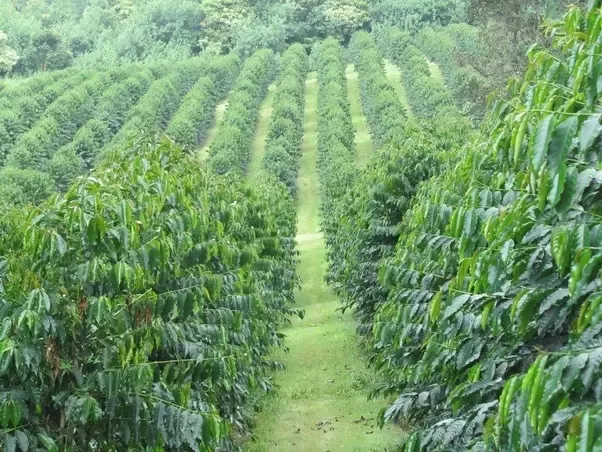Mountain grown coffee refers to coffee beans that are cultivated at high altitudes, typically above 3,000 feet. This unique growing environment contributes to the distinct flavor profile of mountain grown coffee. In this article, we will explore the benefits of mountain grown coffee, where it is produced, popular varieties, brewing techniques, and where to buy this exquisite coffee.
What is mountain grown coffee?
Mountain grown coffee, as the name suggests, is coffee that is grown in mountainous regions. The high altitude, combined with specific climate conditions, creates an ideal environment for coffee plants to thrive.
The cooler temperatures, abundant rainfall, and rich volcanic soil found in these regions contribute to the unique characteristics of mountain grown coffee.
Benefits of mountain grown coffee
Unique flavor profile
One of the primary benefits of mountain grown coffee is its exceptional flavor profile. The high altitude and cooler temperatures slow down the maturation process of the coffee cherries, allowing them to develop more complex flavors.
Mountain grown coffee often exhibits a rich, smooth, and well-balanced taste with hints of floral, fruity, and chocolate notes. The unique flavor profile of mountain grown coffee is highly sought after by coffee enthusiasts.
Higher antioxidant content
Mountain grown coffee is known to have a higher antioxidant content compared to coffee grown at lower altitudes. Antioxidants are beneficial compounds that help protect the body against free radicals, reducing the risk of various diseases and promoting overall health.
Lower caffeine content
Contrary to popular belief, mountain grown coffee generally has a lower caffeine content compared to coffee grown at lower elevations. The slower growth rate of coffee plants at higher altitudes results in beans with lower caffeine levels. This makes mountain grown coffee a great choice for those who are sensitive to caffeine or prefer a milder coffee experience.
Where is mountain grown coffee produced?
Mountain grown coffee is produced in various regions around the world. Some of the most renowned coffee-growing regions known for their high-altitude cultivation include:
Colombian coffee
Colombia is famous for its mountain grown coffee, particularly from the regions of Medellin, Armenia, and Manizales. Colombian coffee is known for its well-balanced flavor, medium body, and bright acidity.
Ethiopian coffee
Ethiopia, often considered the birthplace of coffee, produces exceptional mountain grown coffee. Ethiopian coffee is known for its diverse flavor profiles, ranging from fruity and floral to earthy and wine-like. The regions of Sidamo, Yirgacheffe, and Harrar are renowned for their high-quality coffee beans.
Costa Rican coffee
Costa Rica is another prominent producer of mountain grown coffee. The Tarrazu region, in particular, is known for its high-altitude coffee cultivation. Costa Rican coffee is characterized by its bright acidity, medium body, and notes of citrus and chocolate.
Vietnamese coffee
Vietnamese coffee is often known for its rich and bold taste, influenced by factors such as the altitude, climate, and soil conditions of the mountainous regions where it is grown. The slower maturation of coffee cherries at higher elevations can result in beans with more concentrated flavors.
Additionally, the interaction between the coffee plants and the local environment can lead to distinct aromatic qualities in the beans.
Coffee is an important agricultural product in Vietnam, and the country has gained recognition in the coffee industry for its production and export. Vietnamese coffee is commonly used in traditional brewing methods such as drip brewing and phin filter brewing, as well as in the popular Vietnamese iced coffee known as “cà phê sữa đá.”
The combination of the unique growing conditions in Vietnam’s mountainous areas and the country’s coffee culture makes Vietnamese mountain grown coffee a noteworthy and sought-after option for coffee enthusiasts looking to explore diverse flavors and origins within the world of coffee.
How to brew mountain grown coffee
To fully enjoy the unique flavors of mountain grown coffee, it is essential to brew it correctly. Here are some tips for brewing the perfect cup of mountain grown coffee:
Choosing the right grind size
For mountain grown coffee, a medium to medium-fine grind size is recommended. This allows for optimal extraction of flavors without over-extracting or under-extracting the coffee.
Optimal brewing temperature
The ideal brewing temperature for mountain grown coffee is between 195°F and 205°F (90°C to 96°C). This temperature range ensures proper extraction of flavors without scorching the coffee.
Recommended brewing methods
Mountain grown coffee can be brewed using various methods, including pour-over, French press, and espresso. Each brewing method brings out different aspects of the coffee’s flavor profile, so feel free to experiment and find your preferred brewing technique.
Where to buy mountain grown coffee
Mountain grown coffee can be purchased from specialty coffee shops, online retailers, and even directly from coffee farms in the respective regions. To find mountain grown coffee, you can consider the following ideas:
- Local Specialty Coffee Shops: Many specialty coffee shops and roasters prioritize sourcing beans from specific regions, including mountainous areas. Visit local cafes or roasteries and inquire about their coffee origins.
- Online Specialty Retailers: There are numerous online retailers that focus on providing high-quality, specialty coffees from various origins. Look for websites that provide detailed information about the coffee’s source, altitude, and flavor profile.
- Direct from Coffee Producers: Some coffee producers and cooperatives have their own online stores where you can purchase beans directly from the source. This can be a great way to support the farmers and ensure the authenticity of the product.
- Farmers Markets: In some areas, you might find coffee farmers or representatives selling their beans at farmers markets or local events. This can be an opportunity to learn more about the origin of the coffee and its growing conditions.
- Subscription Services: There are subscription services that offer curated selections of specialty coffees from different regions, including mountainous areas. These subscriptions can be a convenient way to explore a variety of flavors over time.
- Specialty Food Stores: Some specialty food stores or gourmet shops may carry a selection of premium coffee, including those grown at higher elevations.
- Ethically Sourced and Certified Coffees: Look for certifications such as Fair Trade, Rainforest Alliance, or Organic. These certifications can often indicate a commitment to sustainable and responsible sourcing practices.
When purchasing mountain grown coffee, look for reputable sources that prioritize fair trade practices and sustainability.
Conclusion
Mountain grown coffee, with its unique flavor profile, higher antioxidant content, and lower caffeine levels, offers a delightful coffee experience. Whether you prefer the smoothness of Colombian coffee, the diversity of Ethiopian coffee, or the brightness of Costa Rican coffee, the bold taste of Vietnamese coffee, there is a mountain grown coffee variety to suit every palate.
By following the recommended brewing techniques and sourcing your coffee from reputable retailers, you can savor the exceptional flavors of mountain grown coffee in the comfort of your own home.
FAQs
Which coffee is mountain grown?
Mountain grown coffee refers to coffee that is grown at high altitudes, typically above 3,000 feet.
What is so special about mountain grown coffee?
Mountain grown coffee is known for its unique flavor profile and exceptional quality. The high altitude, cooler temperatures, and specific soil conditions contribute to the development of complex flavors and aromas in the coffee beans.
What does the term mountain grown mean about coffee?
The term mountain grown indicates that the coffee beans were cultivated in mountainous regions, usually at elevations above sea level. These higher altitudes provide optimal growing conditions for coffee plants, resulting in superior quality beans.
Why is high altitude coffee better?
High altitude coffee is considered better due to several factors. The lower oxygen levels, cooler temperatures, and increased solar radiation at higher altitudes slow down the maturation process of the coffee cherries, allowing them to develop more complex flavors. Additionally, the higher altitudes often have nutrient-rich volcanic soil, which further enhances the quality of the coffee beans.
Originally posted 2023-08-08 04:11:08.




